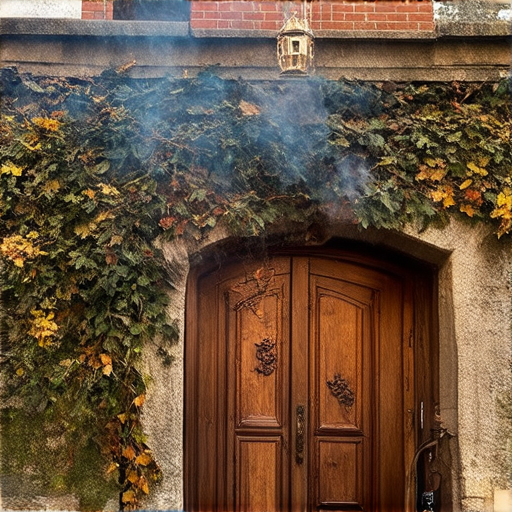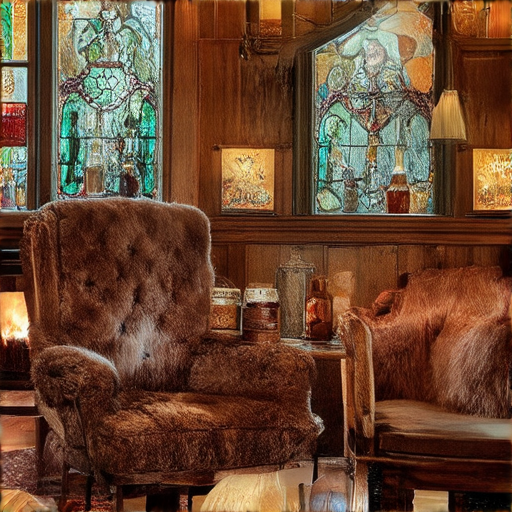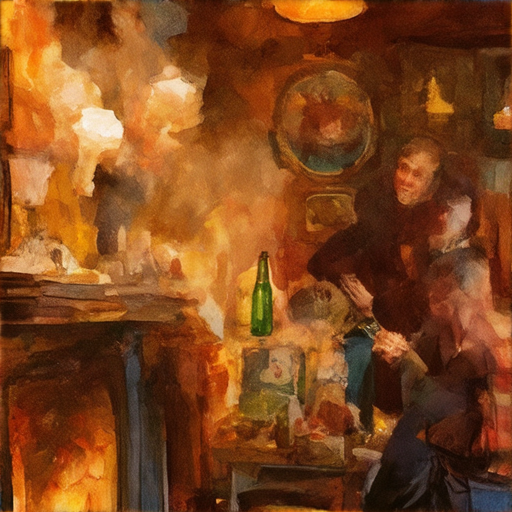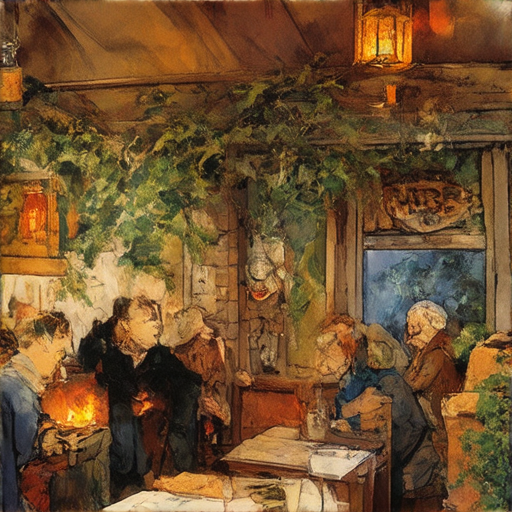For centuries, pubs have been the heart of communities worldwide, serving as vibrant gathering spaces where people come together to share stories, forge connections, and celebrate life’s milestones. From their humble beginnings as ancient taverns to the modern-day institutions they’ve become, pubs have played a profound role in shaping the cultural landscape of societies across the globe. This enduring legacy is rooted in the rich history of these establishments, which have evolved over time to reflect the changing needs and values of their patrons.
As we delve into the world of pubs, it becomes clear that their significance extends far beyond mere entertainment or socialization. Rather, they represent a unique intersection of community, culture, and tradition – a space where individuals can connect with one another, engage with their surroundings, and find a sense of belonging. Whether you’re sipping a pint in a cozy British pub or enjoying a lively atmosphere in an Irish pub, the experience is always infused with a deep sense of camaraderie and shared human experience.
In this article, we’ll explore the complex and multifaceted nature of pubs, examining their historical roots, cultural significance, and ongoing relevance in modern society. We’ll examine the ways in which pubs have adapted to changing times, while remaining true to their core purpose as gathering places for people from diverse backgrounds and walks of life.

The Historical Significance of Taverns
Taverns have played a pivotal role in shaping human history, serving as more than just establishments for socializing and relaxation. From ancient civilizations to modern times, taverns have been integral in facilitating cultural exchange, economic growth, and intellectual discourse.
Ancient Origins
The concept of taverns dates back to ancient Greece and Rome, where public houses served as gathering places for citizens to engage in politics, commerce, and entertainment. These early taverns often featured live music, storytelling, and debates, fostering a sense of community and civic engagement. For instance, the ancient Greeks would often gather at taverns to discuss philosophical ideas and engage in lively debates, laying the groundwork for Western philosophy.
Public houses during this era played a significant role in promoting civic engagement and social interaction among citizens. Similarly, in ancient Rome, taverns served as centers for trade and commerce, hosting merchants and travelers who would share news, negotiate prices, and exchange goods.
Medieval Trade Hubs
During the Middle Ages, taverns emerged as crucial centers for trade and commerce. Merchants and travelers would gather at these establishments to share news, negotiate prices, and exchange goods. The taverns’ role in facilitating trade helped stimulate economic growth and urbanization. For example, the medieval town of Bruges, Belgium, relied heavily on its taverns to facilitate trade between merchants and traders.
Cultural Exchange and Intellectual Discourse
Taverns have long been associated with the dissemination of knowledge and ideas. In the 17th and 18th centuries, coffeehouses and taverns became hubs for intellectuals, scientists, and philosophers to discuss and debate the latest theories and discoveries. Notable figures like Isaac Newton and Voltaire frequented these establishments, contributing to the advancement of science and philosophy.
For instance, the famous coffeehouse in London, where Newton conducted his groundbreaking work on calculus, exemplifies the role of taverns in fostering intellectual discourse and innovation.
Social and Political Impact
Taverns have played a significant role in shaping social and political attitudes throughout history. They have served as platforms for marginalized groups to express themselves, mobilize support, and challenge authority. The Boston Tea Party, for example, was sparked by protests outside a tavern in Boston, demonstrating the power of taverns in mobilizing social change.
Modern-Day Significance
Today, taverns continue to play a vital role in local communities, serving as community hubs and gathering spaces. Many modern taverns have evolved into sophisticated establishments offering a range of amenities, from fine dining to live music and entertainment.
Architectural and Cultural Heritage
Historic taverns have left a lasting legacy in terms of architecture and cultural heritage. Many iconic buildings, such as the Old World Inn in England and the White Horse Tavern in Rhode Island, have been preserved and restored to showcase their historical significance.
Economic Contributions
Taverns have made significant contributions to local economies, generating revenue through food and beverage sales, accommodations, and tourism. According to a study by the National Restaurant Association, the hospitality industry, which includes taverns, generates over $800 billion in annual revenue in the United States alone.
Preservation and Revitalization
Efforts to preserve and revitalize historic taverns have become increasingly important in recent years. Organizations and governments have launched initiatives to restore and repurpose old taverns, ensuring their continued relevance and contribution to local culture and economy.
By examining the historical significance of taverns, we can gain a deeper understanding of the complex roles they have played in shaping human society, from ancient civilizations to modern times. As we look to the future, preserving and revitalizing these institutions will be essential in maintaining their cultural and economic importance.
The Origin of Pub Culture
Pub culture has its roots in ancient civilizations, with evidence of social gathering places dating back thousands of years.
Pub Culture Evolution
- Dufferin Arms explores the unique stories and social significance of pubs, highlighting their timeless appeal and role in communities.
- From ancient Roman tabernae to medieval inns and taverns, pubs have evolved significantly over time.
- During the Roman Era, people gathered in taverns to socialize, conduct business, and enjoy food and drink.
- As the Roman Empire declined, Anglo-Saxon alehouses emerged in England, offering ale and mead to travelers and locals alike.
- During the Middle Ages, inns and taverns became more widespread, catering to merchants, traders, and travelers.
- In the 18th century, the modern concept of pubs as we know it today began to take shape, becoming popular gathering places for workers and laborers.
Key Factors Contributing to Pub Culture
Key factors contributing to the development of pub culture include:
- Socialization and Community: Pubs provided a space for people to come together, share stories, and build relationships.
- Food and Drink: Pubs offered a variety of food and drinks, including traditional British fare like fish and chips, and local ales.
- Economic Importance: Pubs played a crucial role in the economy, serving as hubs for commerce, trade, and tourism.
Conclusion
Understanding the rich history of pub culture provides insight into the evolution of pubs as social gathering places, economic hubs, and cultural institutions.

The Cultural Significance of Speakeasies
Speakeasies were underground bars that emerged during the Prohibition era in the United States, playing a significant role in shaping American drinking culture, promoting social equality, and contributing to the development of the modern cocktail.
- Dufferin Arms explores the unique stories and social significance of pubs, highlighting their timeless appeal and role in communities.
- Wikipedia provides a comprehensive overview of speakeasies, including their history, significance, and cultural impact.
The Cultural Significance of Speakeasies
1. Promoting Social Equality: Speakeasies served as a space for people from different backgrounds to come together and enjoy each other’s company, regardless of their social status. They helped bridge the gap between the wealthy elite and the working class, fostering a sense of community and inclusivity.
The Birthplace of Modern Cocktails
2. Birthplace of Modern Cocktails: Speakeasies were instrumental in the creation of many classic cocktails, such as the Sidecar, French 75, and Manhattan. Bartenders experimented with various ingredients and techniques, leading to the development of new recipes and flavor profiles.
Cultural Hub
3. Cultural Hub: Speakeasies often featured live music, dance performances, and other forms of entertainment, making them vibrant cultural hubs. These establishments attracted patrons from all walks of life, providing a platform for socialization and self-expression.
Symbol of Rebellion
4. Symbol of Rebellion: Speakeasies represented a symbol of rebellion against the strict laws and regulations imposed by the Prohibition era. By operating secretly, these bars defied authority and challenged the status quo, inspiring a sense of freedom and nonconformity among their patrons.
Influence on Popular Culture
5. Influence on Popular Culture: Speakeasies have had a lasting impact on popular culture, influencing films, literature, and music. The idea of secret bars and hidden entrances has become a staple of urban legend and folklore, captivating audiences and inspiring new generations of enthusiasts.
Architectural Legacy
6. Architectural Legacy: Many historic speakeasies have been preserved and restored, serving as testaments to the era’s architectural heritage. These buildings now house museums, restaurants, and bars, offering a glimpse into the past and preserving the memories of a bygone era.
Historical Preservation
7. Historical Preservation: Efforts to preserve speakeasy history and culture continue to this day, with organizations and individuals working to document and protect these iconic establishments. By doing so, we can ensure that future generations appreciate the significance of speakeasies and their enduring impact on American society.
Economic Impact
8. Economic Impact: Speakeasies also played a crucial role in the local economy, generating revenue and creating jobs for bartenders, musicians, and other service staff. Their presence helped stimulate economic growth and development in cities across the country.
Social Commentary
9. Social Commentary: Speakeasies often served as a platform for social commentary, with patrons using the bars as a space to discuss politics, philosophy, and other topics of interest. These establishments provided a safe haven for free speech and intellectual exploration.
Legacy in Modern Times
10. Legacy in Modern Times: Today, speakeasies continue to thrive, albeit in a more subtle form. Modern bars and restaurants often incorporate elements of the traditional speakeasy experience, such as secret entrances and exclusive atmospheres, appealing to customers seeking unique experiences and a connection to the past.

Why Are Pubs Important to the Community?
Pubs have been an integral part of British society for centuries, serving as more than just establishments for drinking and entertainment.
- Dufferin Arms is a prime example of a pub that has successfully preserved its cultural significance and continues to thrive in today’s society.
- They play a significant role in fostering community spirit, contributing to local economies, and promoting social cohesion.
Community Hubs
Pubs often serve as the heart of the local community, hosting various events, festivals, and gatherings that bring people together.
- They provide a welcoming space for residents to socialize, share stories, and connect with one another.
- The British Beer & Pub Association found that 75% of pub-goers reported feeling more connected to their community after visiting a pub.
Economic Impact
Pubs contribute significantly to local economies through job creation, tax revenue, and spending power.
- A study by the Campaign for Real Ale (CAMRA) found that pubs support over 200,000 jobs across the UK, generating £6 billion in annual economic activity.
- This highlights the vital role that pubs play in supporting local businesses and stimulating economic growth.
Supporting Local Businesses
Pubs frequently partner with local suppliers, breweries, and farmers to source ingredients and promote regional products.
- This helps maintain the unique character of each community and supports the growth of small businesses.
- Dufferin Arms, for instance, sources its ingredients from local suppliers whenever possible.
Cultural Significance
Pubs have played a crucial role in preserving traditional British culture, particularly during times of war and hardship.
- Many pubs have served as gathering places for soldiers, sailors, and other service personnel, providing comfort, camaraderie, and a sense of home away from home.
- The National Trust works closely with pubs to preserve their architectural heritage and cultural significance.
Charitable Initiatives
Many pubs engage in charitable activities, such as fundraising events, sponsorships, and donations to local organizations.
- These efforts demonstrate the positive impact that pubs can have on their surrounding communities.
- Dufferin Arms, for example, regularly hosts charity events and fundraisers.
Preserving History and Heritage
Some pubs have maintained historic buildings, artifacts, and traditions, allowing future generations to appreciate and learn about the past.
- The National Trust, for instance, works closely with pubs to preserve their architectural heritage and cultural significance.
- This ensures that the rich history and cultural significance of pubs are preserved for future generations.
The Significance of Pubs
Pubs have been an integral part of British society for centuries, serving as more than just establishments where people can enjoy a pint of beer or a glass of wine.
Community Hubs
- Pubs act as community hubs where people from diverse backgrounds come together, promoting inclusivity and camaraderie.
- According to a study published in the Journal of Community Psychology, pubs are essential spaces for social interaction, particularly among older adults (Journal of Community Psychology).
Cultural Heritage
Pubs often preserve traditional British culture, hosting live music events, quizzes, and other activities that celebrate local history and customs.
Social Support Networks
Pubs provide a safe space for people to connect with others, share experiences, and seek support.
Economic Impact of Pubs
Pubs play a significant role in the economy, contributing to local revenue through various means. According to a study by the UK’s Office for National Statistics, pubs generate approximately £13 billion annually in tax revenue.
Job Creation and Employment Opportunities
Pubs are major employers in many regions, providing jobs for bartenders, servers, chefs, and other staff members. In fact, a survey by the British Beer & Pub Association found that pubs employ around 900,000 people across the UK.
- Pubs also offer training and development opportunities for young people, helping them gain valuable skills and experience in the hospitality industry.
- Furthermore, pubs often host events and activities that bring communities together, fostering social connections and a sense of belonging among patrons.
Culture and Community
Pubs are often at the heart of local culture and community life, serving as gathering places for friends and family to share meals, drinks, and stories. In Ireland, for example, pubs are an integral part of the country’s rich cultural heritage, hosting traditional music sessions and festivals throughout the year.
The British Beer & Pub Association provides valuable insights into the importance of pubs in supporting local economies and promoting community engagement.
By supporting local pubs and participating in their events, consumers can contribute to the preservation of cultural heritage and the promotion of community development.
Contribution to Tourism Industry
Pubs are a popular tourist attraction in many destinations, offering visitors a unique glimpse into local culture and tradition. In the UK, for instance, pubs are a major draw for tourists, with many establishments boasting historic architecture and lively atmospheres.
Visit Britain highlights the importance of pubs in supporting the UK’s tourism industry, citing their role in promoting local products and services.
By visiting and supporting local pubs, tourists can experience authentic cultural encounters and contribute to the local economy, ultimately enhancing their travel experiences.


0 Comments